The tale of making it in Tinseltown has been a mainstay of a version of the American dream since the inception of the motion picture. The handsome young man or the wide-eyed ingenue arrives in Hollywood with dreams of superstardom. But for those who aren't straight, white, cisgender, and young, those shoot-for-the-stars aspirations have always been particularly out of reach.
With all of the glitz and glam of a postwar Paramount picture circa 1947, Ryan Murphy's Netflix limited series Hollywood opens on Jack Castello (The Politician's David Corenswet), a young hunk with giant dimples confidently tossing popcorn into his mouth while taking in a promotional reel intended to lure rising stars to what was then Hollywoodland. Jack's a straight wannabe-actor with the looks and charm of a young Gregory Peck or a Tony Curtis, and in a flip of the narrative, his story is only one of many told in the series.
Soon, Murphy's Hollywood (executive-produced by Janet Mock, who also writes and directs some of the series) belongs to those at the margins. The creatives right the wrongs of classical Hollywood cinema and return stories to those for whom their shot was flat-out stolen or denied.
There's the screenwriter Archie (Jeremy Pope), who's gay and Black; Camille, the Black ingenue longing to break out of being relegated to roles as servants; and the director Raymond Ainsley, played by Murphy regular Darren Criss, who's Filipino but who passes as white. At the center is Patti LuPone's Avis Amberg, the whip-smart woman over 70 who's married to the studio head and who will soon become the linchpin on whom Murphy's aspirational, revisionist history of Hollywood turns. And all of them, including Holland Taylor's studio maven Ellen Kincaid and Mira Sorvino's Jeanne, who's on the verge of aging out for good, and Joe Mantello's closeted gay studio executive Dick, get their own success stories.
For Murphy, the gay mega-producer of Glee, American Horror Story, the upcoming big-screen version of The Prom, and for Mock, a writer, director, and producer of Pose who broke down doors in terms of visibility for trans women and women of color, handing stories back to marginalized people and painting a portrait of what Hollywood could have been and what it needs to be moving forward is personal.
"I wanted to do something specifically on three Hollywood icons who had, I believed, really been treated poorly," Murphy tells The Advocate. "That was Rock Hudson and Anna May Wong and Hattie McDaniel. I was very interested in them, even as a kid."
Indeed, Hudson (Jake Picking) plays a pivotal role in Hollywood as the closeted gay actor abused by his lecherous agent, Henry (Jim Parsons, playing into and then breaking down Hollywood's trope of the villainous, predatory queen). Hollywood's Hudson, who finds himself competing with the straight guy Jack for roles, also finds real love with Archie, thus layering their outsider status as a queer interracial couple.

Darren Criss, Jeremy Pope, David Corenswet, Jake Picking
Michelle Krusiec, known best to queer audiences for the lesbian-themed mid-aughts film Saving Face, plays Anna May Wong, a Chinese-American actress who was considered to be America's first Asian star. She lost a lead Asian role in The Good Earth to Luise Rainer, a white actress. Also, Hollywood gives something back to Hattie McDaniel (Queen Latifah), the Gone With the Wind star who became the first Black actor to win an Oscar but who had to petition to be allowed into the heart of the ceremony because it was segregated.
"Anna May Wong and Rock Hudson and Hattie McDaniel were all in the LGBTQ community. Rock was gay and Anna May and Hattie were bisexual," Murphy says. "I thought it would be interesting to give them the happy ending that they deserved -- to have these fictionalized people, in a revisionist way, usher in a Hollywood that I wish had happened 50 years ago, 60 years ago."
"I related to all of them. Three people who had so much to give and who were denied by the system that opportunity," Murphy says. "Luckily for me, I started making stuff in 1998. And I certainly felt a struggle and constantly being told I couldn't write gay characters and couldn't be who I was."
Of the historical figures Hollywood profiles, Mock tells the Advocate, "I was most intrigued by Hattie McDaniel because of the idea of a Black woman breaking history -- in making history and being the first in that space and the pressure that came from that and also the criticism that came from her playing the role that she played, that she was awarded for."
At the center of Hollywood is the gas station, literally on the margins of town, a liminal place that existed where queer people, outsiders, would go to find like-minded folks and act on their sexual proclivities free from judgment. The proprietor of the station in the series is Dylan McDermott's Ernie, a man's man by any measure, whose business services others. It's there that Jack and Archie, the writer of the meta-screenplay Peg, about the actress Peg Entwistle, who died by suicide by leaping off of the Hollywoodland sign at 24, become friends.
Hollywood is so thorough in its revision that even Entwistle's story is rewritten as Meg and stars a young woman of color, Camille, who chooses life.

Picking and Pope
"The way that I saw myself in the project was largely through the lens of Archie Coleman and Camille," Mock says. "Their characters gave me leeway to say what would life look like if marginalized folk, people of color, sex workers, people over 40, Black and brown folk, were given a chance to tell their own story, to be the center of the narrative."
For all of Hollywood's lush queer life that includes Paget Brewster as a deliciously sexually ravenous Tallulah Bankhead and nude young men frolicking about the estate at an infamous pool party hosted by director George Cukor, the series also centers women who until recently would have been tossed out by Hollywood's demand for youth. The series depicts LuPone's Avis and Taylor's Ellen as sexual, viable, desired, and desirous. And they're also just about the smartest people in any room.

Michelle Krusiec and Laura Harrier
"I was writing a lot about my own experience and my own pain and my own background in this piece, maybe more so than anything since I've done since The Normal Heart," Murphy says. "When I came to town, the men in power could really give a shit about me. I was never mentored. It was the women who were the outsiders who said, 'You have something unusual; I'm going to give you an opportunity.'"
"That role [Avis] was me paying tribute to all of the women who have pushed my stuff through the system," Murphy says. "In the case of Holland and Patti, I think it's a very powerful thing to write women as objects of desire and power, let alone, Holland and Patti are both in their 70s. People always put an expiration date on women."
The story of the struggles of marginalized people in Hollywood and handing them back part of their narrative culminates fittingly at an Academy Awards ceremony at the close of the series. It's fantastical and moving to consider what could have been if women had been in power, if people of color were allowed to tell their own stories, and if queer people weren't forced into closets and to step out with beards.
Murphy has undoubtedly altered the television landscape through queer intersectional characters, especially over the past decade with shows from Glee to Pose. But he expounds about what Hollywood might look like today if everything imagined in his series had come to pass 50 years ago.

Patti LuPone
"They're no longer the best friends or the sidekicks. They are the heroes and heroines of their own story," Murphy says of marginalized people in the business. "That's the kind of world that I have fought to make, and I'm very proud of it."
"When I was growing up, I had no role models. I'm trying to leave a world where young kids can say, 'Oh, OK, I can be successful. I can work within the system and I can be true to myself.'"
Mock, whose immeasurable representation for trans women of color has opened doors for her communities says of Hollywood then and today, says, "One thing that is tough for me as someone who comes from all of these different communities, as a femme, as a woman, as a trans person, a native Hawaiian, a Black woman, and as a former sex worker as well, is that I have to constantly try to validate my experience and why I'm worthy of voice and taking up space in this industry."
"If we were to say that back then in 1947-48, that that was the beginning of a revolution in terms of representation that now, baby Janet coming up in the industry, I would be able to just write, I would just be able to direct, I would just be able to create, then that's what I hope for every single creative out there, that they get to do that."
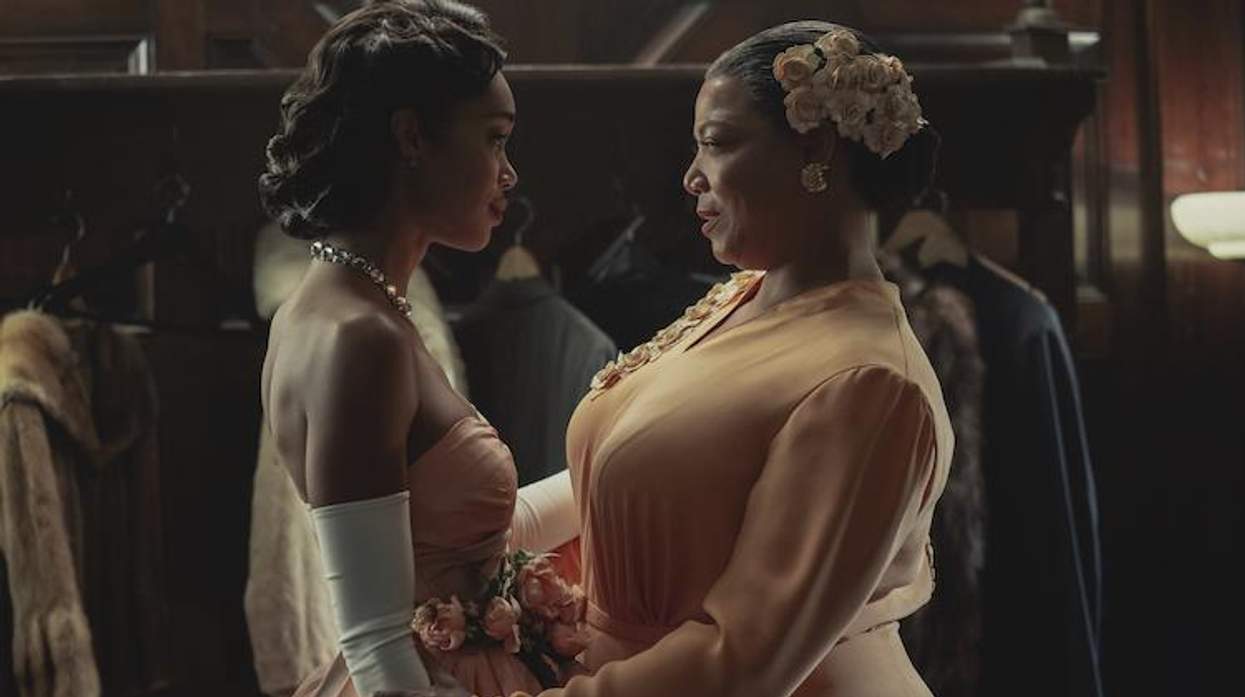

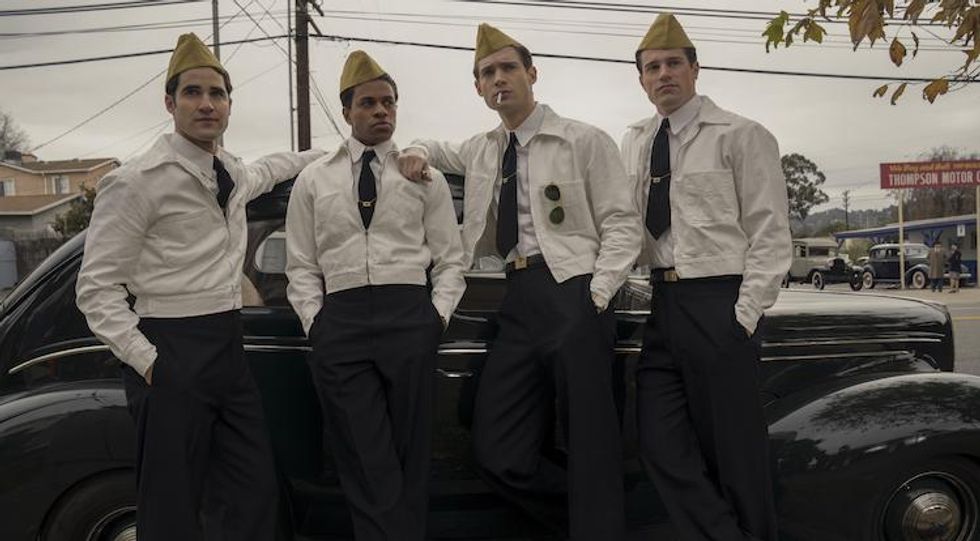
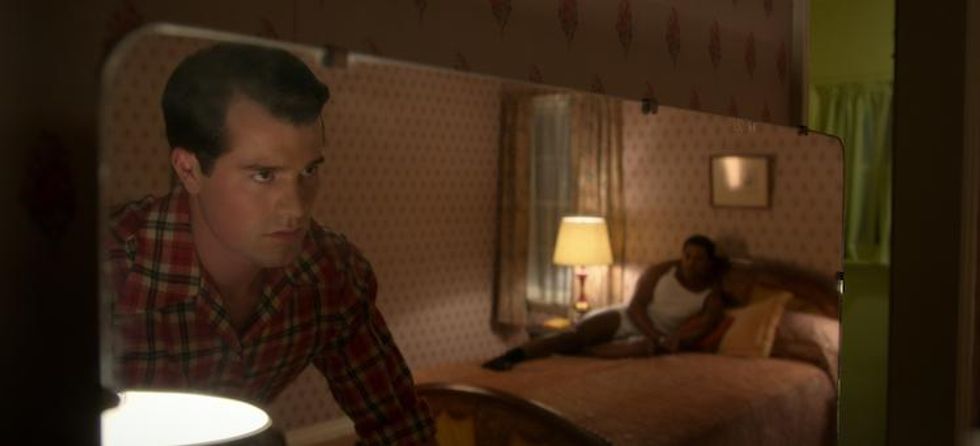
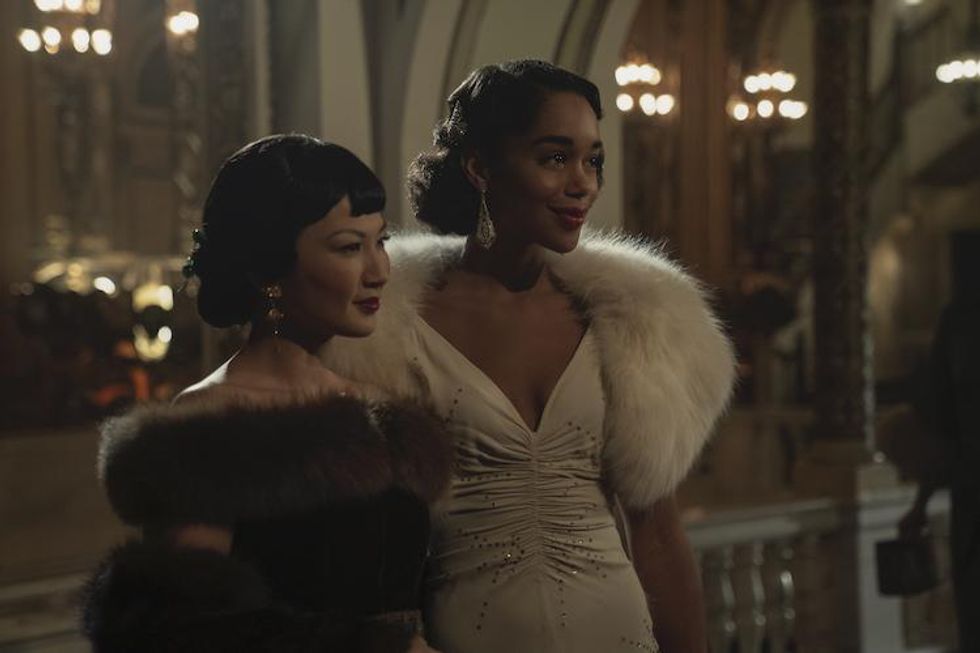
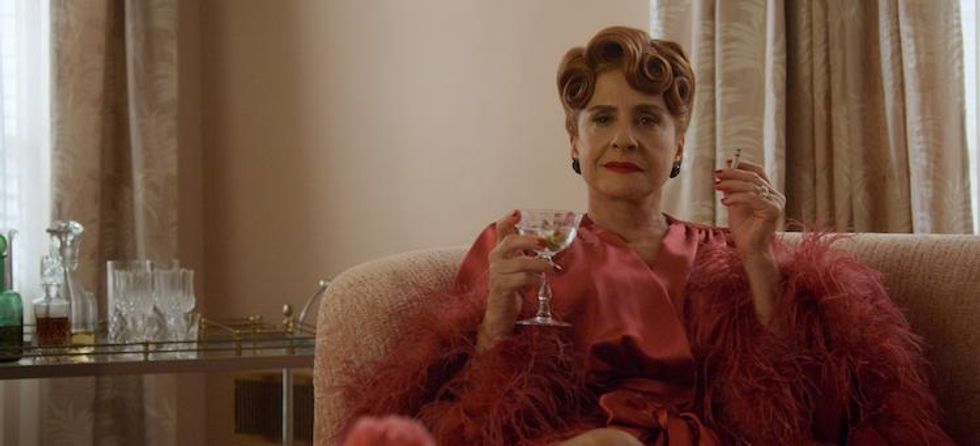



































































Charlie Kirk DID say stoning gay people was the 'perfect law' — and these other heinous quotes